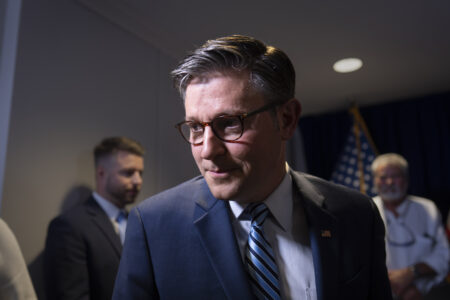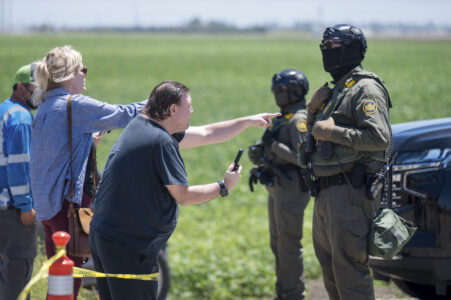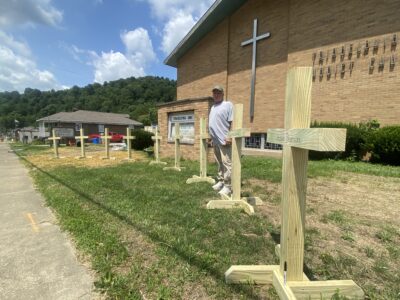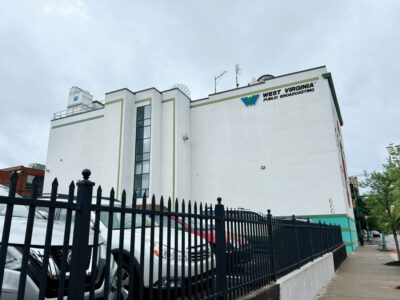Wheeling Panel Discussion Honoring Late Rep. John Lewis Discusses Need for ‘Good Trouble’ Today
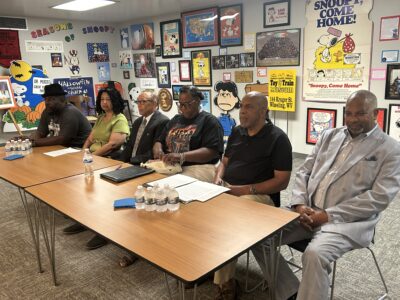
photo by: Joselyn King
Panelists discuss the life and legacy of the late U.S. Rep. John R. Lewis, D-Alabama, during “Good Trouble Lives On,” an event commemorating the five-year anniversary of Lewis’ death. The event took place Thursday at the Ohio County Public Library. Pictured from left are Ron Scott, cultural director for the YWCA Wheeling; Wheeling City Council member Connie Cain; West Virginia NAACP President Daryl Clausell; Wanda L. Morgan, Rosa Parks Award recipient; former state senator Owens Brown, D-Ohio; and Bishop Darrell Cummings of Bethlehem Apostolic Temple.
WHEELING — In the spirit of the late U.S. Rep. John R. Lewis, what America needs today is a good dose of “good trouble,” according to some local residents who are willing to stand up and speak for what they think is right.
The Ohio County Democratic Women with the group Indivisible presented “Good Trouble Lives On,” a commemoration of the legacy of Lewis. The event took place Thursday night at the Ohio County Public Library.
Thursday marked the fifth anniversary of Lewis’s death. A video chronicling his life achievements kicked off the evening — from his being born to sharecroppers, to becoming an activist and being the youngest speaker at the “March on Washington” in 1963. Lewis also was among those beaten and sprayed with tear gas by Alabama State Police that year.
A panel relating Lewis’s experiences to those in society today included Ron Scott, cultural director for the YWCA Wheeling; Wheeling City Council member Connie Cain; West Virginia NAACP President Daryl Clausell; Wanda L. Morgan, Rosa Parks Award recipient; former state senator Owens Brown, D-Ohio; and Bishop Darrell Cummings of Bethlehem Apostolic Temple.
Scott spoke of how activists during Lewis’s time “cared about morality, and that their humanity showed up.”
“One thing that stood out to me is they depended on the morality of the rest of the country,” he said.
“They knew if people saw them in corners being beaten with sticks and attacked by dogs and sprayed with water hoses, their humanity would show up — and other people would say I don’t want to see that happen.
“Of their fellow Americans, they thought If they see us going through this, they will see that we are linked.”
Scott encouraged the crowd to sit down with those who have thoughts different from theirs and “find the humanity they have that matches yours.”
Cain — who won her seat on council by just three votes — urged everyone to believe that “every vote counts,” and that voting is what gives us a voice.
“It’s the most important non-violent tool that we have,” she said.
Clausell noted that Lewis, like himself, was connected to the NAACP.
“It was a comprehensive movement, meaning that numerous organizations worked in alignment with each other to achieve one goal … ,” he said. “There was often collaboration and shared goals among several organizations.
“We may not have always been in the same place at the same time, but we always fought in alignment with each other.”
Moore said she was there to speak “as a concerned citizen.” She added that if Lewis were alive today, “he would want us to speak up if we saw injustice” and not be afraid.
“We should be concerned. Our democracy is in danger,” Moore said. “Our constitution is in danger. So are our rights to vote, to protest, a right to a fair hearing, and equality for everyone. There is also the threat of authoritarian rule in the United States. There is a full attack mode, and our freedom is definitely at stake.”
Brown also spoke about the power of the vote.
“We the people … in order to form a more perfect union … have to vote,” he said. “If people voted in the last election like they had before, we would not be in the situation we are in today. We are in a period of darkness where we have people afraid and hunkering down like animals
“We have people treating their pets more humanely than they treat other people. I have a difficult time understanding how people can treat their pets better than they treat other human beings.”
Cummings provided a historical perspective on the “March on Washington,” noting Lewis’s role as a speaker.
“Who will be the next to pick up the mantle of justice?” he asked. “I’m honored to be here with some people who honestly care to remember words that John Lewis spoke, and I’ll remind you of them again.
“(Lewis said) ‘Get in good trouble. Get in necessary trouble to redeem the soul of America.’ With your help, we can,” Cummings concluded.

